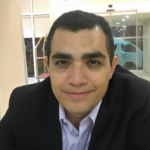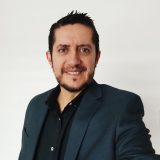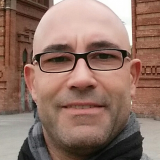"Creating a digital twin robot in Webots: a step-by-step example"
In this tutorial, we will learn how to build a digital twin robot using Webots, a robot simulation environment widely used in robot research and development. A digital twin robot is an accurate virtual replica of a physical robot that can be used to test and validate different behaviors and algorithms without needing the physical robot. We will start with an Introduction to Webots, the setup of the working environment, program a controller for our robot, and finish with testing and analysis.
This workshop will provide a solid foundation for creating and using robots in Webots, allowing you to safely develop and test your robotic algorithms and applications.
Duration: 4 hours
Requirements:
- The following hardware is required to run Webots: A reasonably recent PC or Mac computer with at least a 2 GHz dual-core CPU clock speed and 2 GB of RAM is a minimum requirement.
- Windows: Webots runs on Windows 11 and 10 (64-bit versions only).
Mac: Webots runs on macOS 11 “Big Sur”, macOS 12 “Monterey” and macOS 13 “Ventura”. - Linux: Webots are guaranteed to run on the latest Ubuntu Long Term Support (LTS) versions, including versions 22.04 and 20.04. But it is also known to run on the latest major Linux distributions, including RedHat, Mandrake, Debian, Gentoo, Arch, SuSE, and Slackware.
About the speaker:

Alexander Marcelo Ortiz Rendon
Artil Robotics
Marcelo Ortiz is ecuadorian, co-founder of Artil Robotics, his career focused on the development of technological solutions and automation using embedded systems, firmware programming, and the creation of custom electronic circuits. He has published in journals indexed in Scopus, Springer, and IOP Science. In 2018 and 2019, he was in Tokyo to defend his scientific findings and in the Robotics World Cup. In 2020, he was part of Huawei’s Seeds for the Future program. Since then, he has developed a unique taste for technology. His hobby is programming biped robots and mazes.
"Design and construction of electrical power distribution networks"
In this workshop you will learn the basic concepts for the design and construction of electrical power distribution networks with practical cases so that at the end of this workshop the student will be able to identify the different elements of an electrical network and the design criteria in accordance with the regulations in force in the country.
Duration: 4 hours
Requirements:
- Computer with Microsoft Office
- AutoCAD
About the speaker:

Lenin Arturo Montaño Rivas
Empresa Eléctrica Ambato
Lenin Montaño is ecuadorian, Electrical Engineer with 12 years involved in the electrical sector, experience in the design and construction of electrical distribution networks, and a career officer of Empresa Eléctrica Ambato.
"Competitive Intelligence for Knowledge Production Applied to Countries and Their Higher Education Institutions: LATAM"
Competitive Intelligence is commonly applied to industry and companies, mainly because the life cycle of 50% of companies in the stock market is of just 5 years, so companies born and dye. But what about when we apply competitive intelligence to the knowledge production by a country or by their higher education institutions (HEI). The measurement of academic or industry research productivity lets higher education institutions, academic research centers and industry research centers to detect opportunity areas to face challenges, improve decisions and to make better strategies for research development and innovation. For new researchers, it lets to align an academic career from junior to senior maturity level; for employers, it lets to know how aligned a researcher is to a knowledge area or how easy or not could be to integrate a researcher to a group; for investors, it lets to know if an ambitious project could be reached on time and budged. This tutorial let participants to make repeatable process for each country and their HEI.
Duration: 4 hours
Requirements:
- Computer with Internet access.
About the speaker:

Jose Ignacio Castillo Velazquez
Universidad Autónoma de la Ciudad de México
Ignacio Castillo has been working for 27 years in telecommunications and computer industry and academia in 110 national and international projects, as team member or leader on technical and management positions in internet networks, data centers and engineering management. His interest: Internet networks, Datacenters & Eng. management. In industry he worked for DICI, IFE, REDUNO-TELMEX and DATACENTER DYNAMICS, being now an independent consultant. In academia he is a full-time professor-researcher at Autonomous University of Mexico City (UACM) since 2008 being Head of the Advanced Networking Laboratory. He was full time at UPAEP and UTM, and he was visiting professor or p time at UPS Ecuador, UDEFA (Military), UAM and BUAP. He wrote 4 books, and 50 journal and conference papers (SCOPUS h-8 index). He has lectured 140 undergraduate & graduate courses. His ADVNETLAB team developed the software UTILCON. He received 20 international and national awards and distinctions, such as : IEEE ANDESCON Best paper award 2022 and 2020, IEEE Computer Society BoG member and IEEE Senior Member. He was an IEEE Computer Society Distinguished Lecturer (2015-2017), till today, he offered 171 keynotes, invited talks and webinars, and 16 tutorials for conferences. He is volunteer for IEEE Communications Society and Computer Society
"Practical Analysis of Industrial Grounding Systems - Holistic Vision"
This workshop will establish all the requirements that grounding systems must-have for different purposes and their interconnection and harmonious integration in electrical installations. For this purpose, the grounding of the power system as a method of surge control will be analyzed; the grounding of equipment as a means of safeguarding people against possible electrocution; the grounding for lightning protection purposes as a safe lightning drainage mechanism; the grounding for lightning protection purposes as a secure lightning drainage mechanism; grounding for the drainage of static charges to prevent explosion in hazardous classified areas; the particular considerations of grounding systems for sensitive equipment (Telecommunications and Computer Centers), as well as explaining the requirements and international conventions contained in the IEEE / IEC / NFPA standards. All this is to obtain a holistic view of the problem and to understand that even today, grounding is over-dimensioned, making costly but equally inefficient or unsafe practices. The mastery obtained in this workshop will allow the correct application of these practices in different industrial sectors such as the OIL&GAS Sector, Telecommunications Sector, Construction Sector, Power Supply, and Energy Generation Sector.
Duration: 4 hours
Requirements:
- No requirements
About the speaker:

Gustavo A. Salloum S.
KAIZEN Engineering Consulting Company
Gustavo Salloum is an electrical engineer with more than 20 years of experience in international projects. He is a qualified electrical installation specialist with a master’s degree in electrical engineering and strategic management. Gustavo is a researcher and recognized specialist in grounding systems, lightning protection, and corrosion in the electrical field, topics on which he has published several books for professional training. Moreover, he is a PMP-certified Project Manager and Corrosion specialist, certified in cathodic protection NACE/AMPP. He has extensive experience executing and directing multidisciplinary engineering projects in Latin America for power generation, transmission, and distribution companies; and OIL&GAS. He is the Director and founding partner of the engineering company KAIZEN (www.kaizengrp.com).
"Entrepreneurship Workshop for Scientists and Engineers"
This immersion workshop describes the processes to follow to take a scientific research result to a product or service with the capacity to establish a business idea that triggers a technological venture.
Duration: 4 hours
Requirements:
Computer access for teamwork
About the speaker:

Carlos Guillermo Bran
Director of the Institute for Research and Innovation in Electronics, Universidad Don Bosco.
Carlos Bran is the Director of the Institute for Research and Innovation in Electronics at Universidad Don Bosco, Director of the IEEE ComSoc Communications Society, and Director of the Network to accelerate the transition of SMEs to Industry 4.0 with low-cost technology, CYTED.
Education: Electrical Engineer, Universidad Centroamericana; Postgraduate degree in Technology Management, Universidad Tecnológica de Pereira; Postgraduate degree in Embedded Systems, New Mexico State University, Master and Ph.D. studies in Information Technology Research, Universidad de Santiago de Compostela; CCNA/CCNP/Security Certification, Cisco Networking Academy.
Work experience in companies in telecommunications, power systems, and renewable energies. Academic experience as Dean of the Faculty of Engineering, IT department director, and professor of undergraduate and graduate courses in embedded systems, electronic design, computer networking/security, industrial communications, and computer vision.
Research interests include areas related to embedded systems, renewable energy, the Internet of Things, ASIC design, network protocols, parallel systems, computer vision, collaborative robotics, and nature-based systems.
"Digital Business Transformation. An Integral Approach"
A company’s Digital Transformation is not born in the implementation of technologies. It is a process of integral internal transformation empowered by technology.
Duration: 4 hours
Requirements:
No requirements.
About the speaker:

Pablo Leonardo Pesántez Salas
Master’s in business administration from INCAE, Master in Digital Transformation from OBS / Universidad de Barcelona, Postgraduate University Professor.
Pablo Pesántez is a business consultant in Business Strategy, Marketing, and Digital Transformation with over 20 years of experience. Master’s in business administration from INCAE, Master in Digital Transformation from OBS / University of Barcelona, Postgraduate University Professor at the Universidad de Cuenca, Universidad del Azuay, and Universidad del Pacífico.
"WEB 3.0 - The new evolution of the Internet"
The workshop’s objective is to present and understand the state of evolution and the new Internet generation, called WEB 3.0, where the control of data and user information is under their control. One of the technologies contributing to this change is blockchain technology, with the decentralization of information and data, generation of new economies, definition of governance mechanisms, transfer of value, and solutions to ensure privacy and digital identity.
For 4 hours, the workshop WEB 3.0 – The New Evolution of the Internet will consist of four modules. The basic concepts and components of blockchain technology will be presented to understand the technological innovation it introduces. These concepts will allow an understanding of WEB 3.0, and the contributions to the new idea of the Internet will be presented. The state of the art and how it is addressing the challenges to the implementation of Self-Sovereign Digital Identity (SSI) and privacy in a decentralized world will be presented, to finish with an approach to the actual applications of blockchain technology and what are the current challenges that are being addressed by the research.
Duration: 4 hours
Requirements:
No requirements.
About the speaker:

Ignasi Oliva Corrales
Blockchain Innovation Manager in the Department of Cybersecurity & Blockchain R&I. i2CAT Area Foundation.
Ignasi Oliva Corrales is a Technical Engineer in Computer Systems from the Faculty of Computer Science of Barcelona (FIB-UPC). He also holds a Master’s in Blockchain technologies from the Universitat Politècnica de Catalunya (UPC) – BarcelonaTech. As Blockchain Innovation Manager at i2CAT foundation, he led the strategic activities and R+D+I in DLT/Blockchain technologies in the Cybersecurity & Blockchain R&I Area. He has led the Blockchain Observatory of Catalunya, as well as European and national projects in social innovation, health data sharing, digital identity, data space, data privacy, e-voting, cybersecurity – User and Entity Behavior Analytics (UEBA), and e-signature platforms. He has acquired responsibilities in the public and private sectors as a strategic consultant and digital innovation in digital transformation processes and industry 4.0, as well as in eGovernment processing platforms. Ignasi has also been a tutor for the Computer Engineering degree at the International University of Valencia (VIU) and co-authored the chapter on Cloud Application Security: Digital Identity Management in the book DevOps and Cloud Security of the Universitat Oberta de Catalunya.
